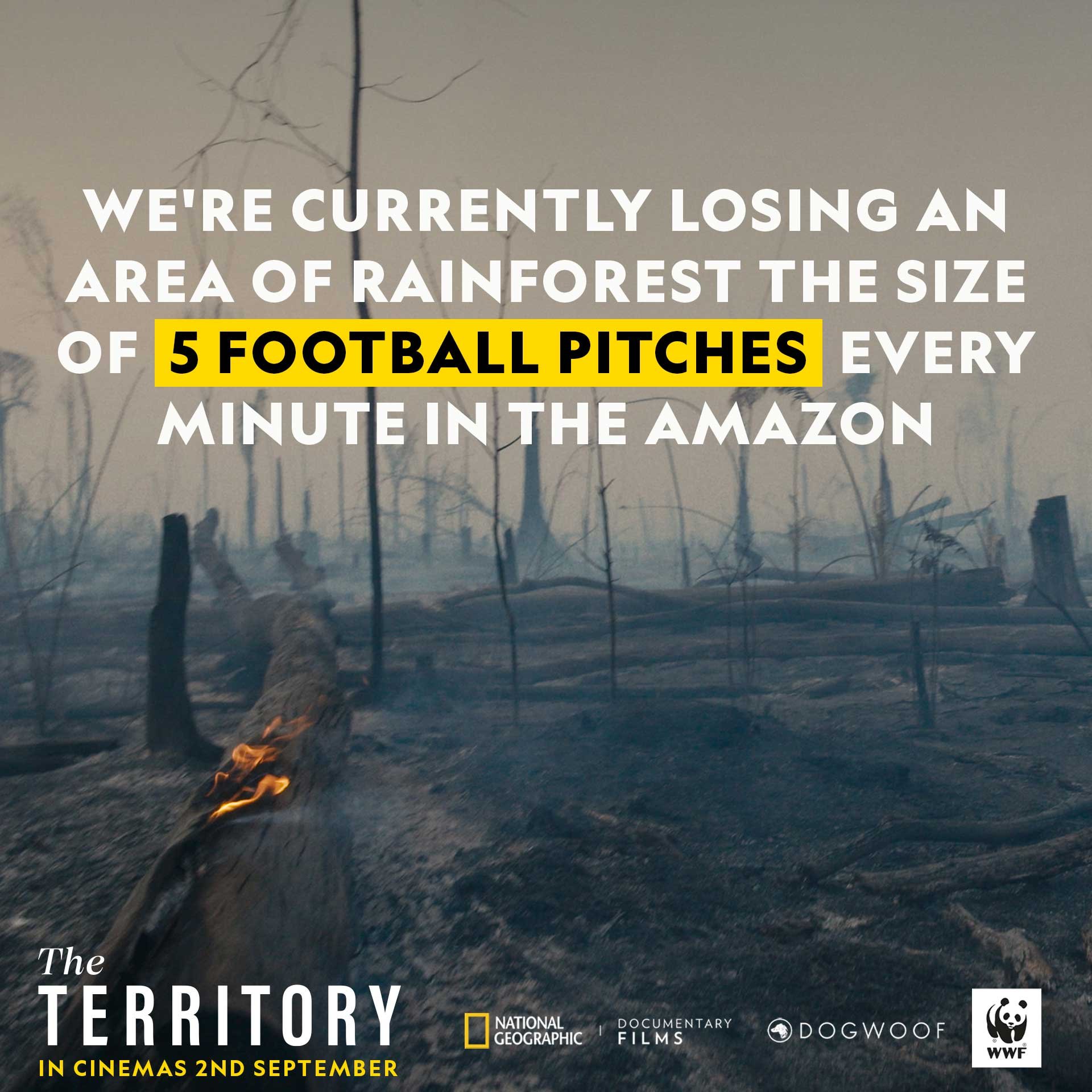The majestic The Territory, an essential documentary about a local activist and his team fighting back for their indigenous territory in the Brazilian rainforest, is opening in cinemas tomorrow. Take a closer look behind the story of the Uru-eu-wau-wau Community and their fight against deforestation.
The Territory provides an immersive on-the-ground look at the tireless fight of the Indigenous Uru-eu-wau-wau people against the encroaching deforestation brought by farmers and illegal settlers in the Brazilian Amazon. With awe-inspiring cinematography showcasing the titular landscape and richly textured sound design, the film takes audiences deep into the Uru-eu-wau-wau community and provides unprecedented access to the farmers and settlers illegally burning and clearing the protected Indigenous land. Partially shot by the Uru-eu-wau-wau people, the film relies on vérité footage captured over three years as the community risks their lives to set up their own news media team in the hopes of exposing the truth.
Meet the activists
Bitaté Uru-eu-wau-wau
Bitaté was not yet 19 when the Uru-eu-wau-wau elders nominated him to become the new president of Jupaú Association, the leadership body that engages with the government and other outside entities. “I think the elders felt that Bitaté was well-equipped to respond to the mounting threats against their community,” Pritz comments. “Along with the invasions, there were new types of attacks coming in the form of laws and budget cuts and things like that. Bitaté understood that world pretty well. He’d learned how to fly drones and used them for surveillance. It was clear that technology and media were going to become a big part of how he would respond to all of these threats.”
The Uru-eu-wau-wau’s dedication to safeguarding their territory is rooted in their ancient connection to the land. As Bitaté describes it, “We have a special love and care for our territory because it’s where our ancestors are from; it’s where all the wisdom is. Our culture, our traditions, our traditional foods and medicinal plants are all inside the forest. It’s a wealth we want to preserve for future generations. That’s why we’ve fought, and are still fighting, for this territory.”
(Source: National Geographic)
Neidinha Bandeira
Neidinha spent over four decades working directly with Indigenous communities to defend their rights and protect their lands. In 1984, she moved back to Uru-eu-wau-wau territory as a ranger for FUNAI, the government agency responsible for protecting the traditions, cultures and rights of Indigenous people. A rush to exploit the rainforest for logging, mining, farming and cattle ranching was underway. While the Uru-eu-wau-wau had been granted sovereignty over 7,000 square miles of their ancestral territory, illegal incursions and attempted land theft were common. Neidinha and the Uru-eu-wau-wau worked together to conduct surveillance and catch invaders, forging an enduring relationship. After exposing corruption inside FUNAI in 1990, Neidinha and her fellow whistleblowers founded the nonprofit Kandidé Ethno-Environmental Defense Association to continue their work with Indigenous populations.
The activists’ dedication and the urgency of the moment pointed towards a documentary about the Uru-eu-wau-wau and their fight to preserve their land. In the years since the Uru-eu-wau-wau were first contacted in 1981, deforestation has transformed what had been one of Brazil’s major rainforests. “Neidinha had a really strong focus on the Uru-eu-wau-wau as the biggest territory in the state of Rondônia, a territory with huge ecological importance for the entire region,” Pritz notes. “She’s known this community for over 40 years, many of them since they were born. Their land is triple the size of Delaware and they’ve got 183 people trying to defend it. It’s so hard.”
(Source: National Geographic)
Ari Uru-Eu-Wau-Wau
A teacher, leader, and environmental activist, Ari Uru-Eu-Wau-Wau dedicated his life to protecting his community and the Amazon Rainforest. In April of 2020, he was killed for defending the land his people have lived on for millenia.









